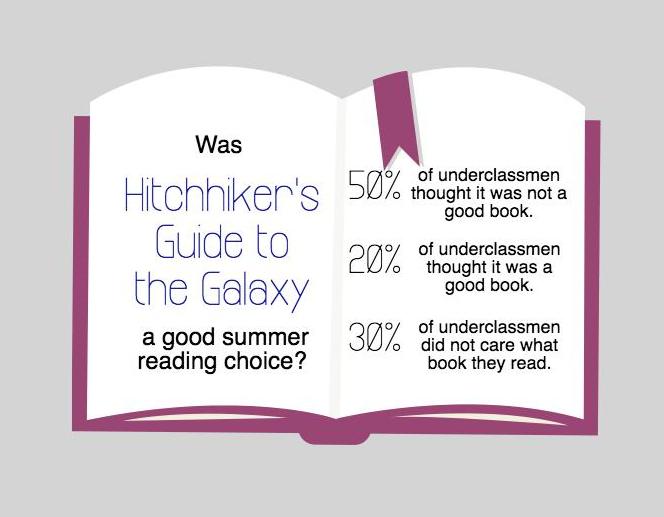It’s the first day of summer. All the recently released students twiddle their thumbs and rack their brains on what they could possibly be expected to do with all their free time over the next two months. But then, they remember the one solution to their problem; they have summer reading! Hightailing it to the nearest book store, their nerves subside as they get their hands on the one thing that will maintain their desire to succeed when the they return to school in the fall.
Though this scenario may be what teachers dream of happening, it is far from realistic. Many students don’t even pick up the summer reading book once over the course of their time-off. The idea of unity that is so highly emphasized with ‘One School, One Book’ isn’t even practiced. Requiring the entire school to read the same book is pointless when only a fraction of the students actually read it.
When students do actually read it, there is a good chance that their English teacher won’t even incorporate the book into their curriculum. What is the point of dedicating the time to read the book when that time is sometimes not even acknowledged?
The whole process of summer reading interferes with the pleasure that should be associated with reading a book. Perhaps an alternative to an assigned novel would be encouraging students to choose a book that specifically appeals to their interests. This would still allow students to maintain their intellectual abilities over the break, which apparently will disappear if not stimulated by a book.
Students already have countless things keeping them busy during the summer; whether it includes travel, a job, homework, or preparing for the college search. These activities all require extensive time commitments and responsibility; introducing summer reading to this mix creates even more stress. Minimizing the number of burdens that the students face during the summer will only make them more productive in other aspects of their lives.



